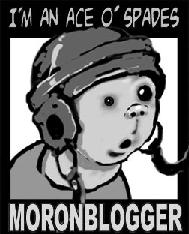The CIA Obstructs Justice
Right after Thanksgiving I mentioned briefly that a district court judge hearing a terrorism case ordered that the prosecution and the lead defense counsel be given security clearances so they could see secret CIA filings in the case. The judge was reacting to the news that the CIA had lied to her in the Moussaoui trial about the existence of recordings of terrorist interrogations.
Now it turns out that the CIA had tapes of the interrogations, but claimed that no such tapes existed when they were sought by Judge Brinkema and the 9/11 Commission, . After that, in 2005, the CIA destroyed the tapes.
The CIA says that they had to be destroyed because (1) they posed a serious security risk to the agents who were recorded; (2) they no longer had intelligence value; and (3) they could expose agency officials to greater risk of legal liability.
The first excuse is a good one for holding the tapes close, not necessarily destroying them. If the CIA has reason to believe that secret material would be made public if it were provided in camera to Judge Brinkema then we are in deeper trouble I thought. Holding out on Congress is more reasonable, since we all expect that certain Congressfolk or their staff would have trouble keeping the video and audio to themselves. But that’s still reason merely to hold the tapes close and not to destroy them.
The second excuse also isn’t a good reason for destroying the recordings, especially given how much interest there was in Congress about our interrogation techniques. They may not have had any intelligence value, but they would be very valuable to Congress in setting interrogation policy. More than that, the question of treatment during interrogation has been central to a few terrorism trials; that will probably be so for several trials to come.
The third reason is the worst excuse for destroying the tapes. Destroying evidence wanted in court is what sunk Arthur Andersen after Enron. Whether it’s reasonable or not to hold out on Congress, actually destroying the tapes when they’re wanted for a criminal trial is obstruction of justice. The CIA doesn’t get a free pass simply because it’s concerned about its own liability.
More than that, this leads to more questions in the Moussaoui trial. He eventually pled guilty and was sentenced to life imprisonment without the possibility of parole (one juror refused to vote for death). Does he now get to claim that he was deprived of justice because the CIA lied? What other prosecutions has the CIA jeopardized now that judges have good reason to distrust submissions from intelligence agencies?
We have procedures in place for the use of secret information in trials. If the CIA has reason to believe that those procedures are not adequate to protect state secrets, it should say so. It should not start lying to courts or to Congress. I sincerely hope that the CIA gets smacked down hard for this one.


